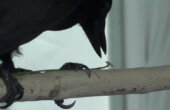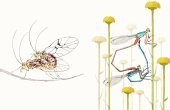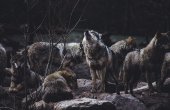The Devastating Effects of Fireworks on Pets and Wildlife
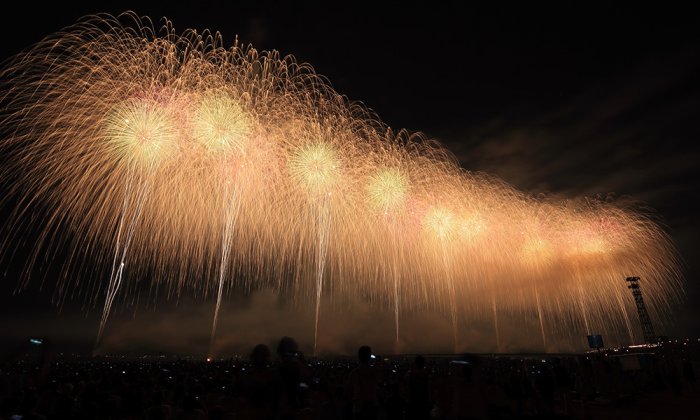
Fireworks have become a fixture of many celebrations around the world, from weddings to national holidays. But there are many among us, including the furry, feathered and finned, who feel fear with every thundering boom.
Animal caretakers, wildlife rehabilitators and fire services see firsthand the damaging — and sometimes fatal — effects whenever and wherever fireworks are deployed.
Real risks for animals
Cats and dogs both experience sounds at far greater intensity than humans. Fireworks appear for them as discordant noise without warning.
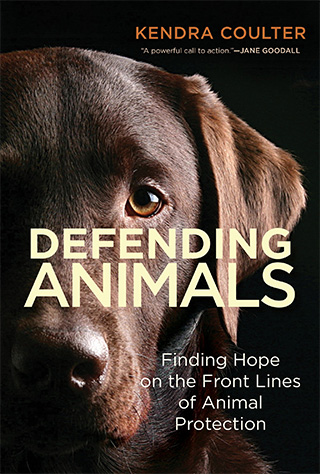
Studies suggest up to 50 percent of dogs are afraid of fireworks. Frightened animals awakened from sleep or startled from a state of relaxation will hide, pace, shake, cry or flee, unable to process what is going on or find a safe haven.
I had a tough and confident rescue dog named Ms Macey who was only afraid of one thing: fireworks. She would try to find reprieve by hiding in the bathtub.
Horses’ innate fear responses can take over when they hear fireworks. This led to the tragic death of a horse in Nova Scotia in 2022, neither the first nor last related equine casualty.
So far this year, Murphy and Tallulah were two horse victims of fireworks, the latter so afraid she ran through a wooden fence.
Studies suggest up to 50 percent of dogs are afraid of fireworks.
It’s not only animals who are at risk either. Spooking horses can accidentally hurt people trying to handle and comfort them. Bystanders can also be injured when horses bolt out of fear.
Wild animals’ responses
The dangers are serious for wild animals like birds, squirrels, frogs and fish too. During fireworks explosions, nearby resting birds will flee in fear en masse from trees and ponds, and fly off into the night sky.
Some birds have flown so far out to sea, they would not physically have been able to return to land alive. Birds can crash into buildings, get lost and disoriented and literally fall, by the thousands, onto communities.
Because fireworks are launched at night, the full effects on wild animals are challenging to document. Researchers expect that millions of birds are affected around the world and that the results linger after the smoke has disappeared.
In spring and early summer, when animals like birds and squirrels are nesting or in the early stages of rearing their offspring, the risks are even greater. Babies die of dehydration or starvation when terrified or disoriented animal parents cannot find their way back to their nests and burrows. These painful deaths are particularly tragic because they are completely avoidable.
Risks to people
The negative impacts of fireworks extend beyond animals — they can also trigger refugees and veterans.
When set off, fireworks can release toxic chemicals and pollute the environment. And during warnings of the potential of an intense and dangerous fire season, the incendiary risks of fireworks are even more dire.
Nearly 20,000 blazes were started by fireworks in the United States in 2018 alone, killing five people and injuring dozens more. The fact that fires are already decimating forests and communities makes these facts even more alarming. It’s difficult to see why fireworks are permitted at all.
Harm is nothing to celebrate
Thankfully, some communities are taking action and exploring alternatives to conventional fireworks.
In 2018, the Italian town of Collecchio made headlines as the first in the world to implement “silent” fireworks; they aren’t completely noiseless, but make far less noise than traditional fireworks.
That same year Banff, Alta. moved to a much quieter pyrotechnic display for its Canada Day event. And this year, the city suspended the light show to “review the impacts of noise and light flashes on wildlife and the secondary impacts on pets and people in the community,” which is laudable.
It is a disturbing display of ego that the human desire to light up the quiet night sky with explosions continues despite the serious effects it has on vulnerable people, other species and our shared environment (not to mention the cost when governments are footing the bill).
Since backyard and community-run fireworks continue in most places, concerned animal caretakers should take steps to protect their animals.
But individual actions aren’t enough to mitigate the damaging effects of fireworks on domesticated and wild animals. The more this issue is raised, the more likely this harmful practice will be replaced with alternatives that are more respectful and genuinely joyful. Harm should be prevented not cheered. Governments ought to ensure celebrations consider the well-being of humans and other animals alike.
Kendra Coulter is Professor in Management and Organizational Studies at Huron University College at Western University, a Fellow of the Oxford Centre for Animal Ethics, and the author of “Defending Animals.”
This article is republished from The Conversation under a Creative Commons license. Read the original article.

